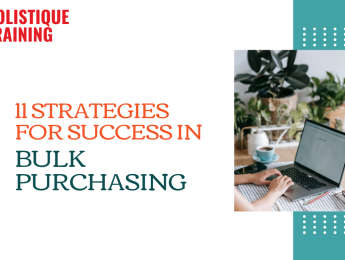Introduction
Starting a business is a thrilling endeavour, but it can also be a daunting and challenging journey. For many aspiring entrepreneurs, the path to success is riddled with uncertainties, roadblocks, and tough decisions. However, they need not navigate this complex terrain alone. The role of a mentor in the life of a startup founder can be transformative, providing valuable guidance, insights, and encouragement. In this blog post, we will explore the significance of mentorship for startups, shedding light on what a startup mentor is, the benefits of mentoring for founders, and essential considerations in finding the perfect mentor.
What Is a Startup Mentor?
A startup mentor is an experienced and knowledgeable individual who voluntarily offers guidance and support to budding entrepreneurs. They are seasoned professionals or successful business leaders who have already walked the entrepreneurial path and have a wealth of knowledge to share. A mentor's role goes beyond just imparting information; they act as a confidant, coach, and friend, helping founders navigate the complexities of business development, personal growth, and decision-making. Let’s take a closer look at each of these roles, among other ones:
1. Sounding Board for Ideas
- Mentors provide a safe space for founders to articulate their thoughts and ideas.
- Actively listen and offer constructive feedback on the viability and potential challenges of these ideas.
- Serve as a sounding board for brainstorming sessions, contributing their experience and insights.
2. Pillar of Emotional Support
- Acknowledge the pressures and uncertainties that come with entrepreneurship.
- Offer emotional support during challenging times, acting as a confidant for personal and professional concerns.
- Provide encouragement and motivation to boost the founder's confidence.
3. Coach in Decision-Making
- Assist in critical decision-making by providing a different perspective.
- Encourage a thoughtful and strategic approach to decision-making processes.
- Share personal experiences of decision points in their own entrepreneurial journey.
4. Guide in Business Development
- Share industry-specific knowledge and insights to aid in the development of the startup.
- Offer guidance on market trends, customer behaviour, and potential challenges.
- Help founders navigate the complexities of business strategy and development.
5. Friend and Mentor Relationship
- Foster a relationship that goes beyond professional interactions.
- Build a connection based on trust, mutual respect, and genuine care for the mentee's well-being.
- Create an environment where the founder feels comfortable seeking advice on both personal and professional matters.
6. Provider of Constructive Criticism
- Offer honest and constructive criticism to help founders refine their ideas and strategies.
- Challenge assumptions and encourage critical thinking for more robust decision-making.
- Act as a mentor who is not afraid to point out areas that need improvement.
7. Resourceful Networker
- Leverage their extensive network to connect founders with potential partners, investors, or customers.
- Introduce mentees to valuable contacts that can contribute to the growth of their startup.
- Provide guidance on effective networking strategies and relationship-building.
8. Motivator for Personal Growth
- Encourage continuous learning and personal development.
- Set goals for the mentee's personal and professional growth and hold them accountable.
- Inspire a mindset of resilience and adaptability in the face of challenges.
9. Advocate for Accountability
- Set achievable goals and milestones to measure the startup's progress.
- Hold founders accountable for meeting these goals, instilling discipline and responsibility.
- Establish a structured approach to ensure continuous improvement and focus.
10. Lifetime Learner and Sharer
- Exhibit a commitment to continuous learning and staying updated on industry trends.
- Share their own learning experiences, emphasising the importance of being adaptable.
- Encourage a culture of knowledge sharing within the mentor-mentee relationship.
Understanding these diverse roles underscores the importance of the mentor-mentee relationship as a comprehensive support system. Founders benefit not only from the mentor's business acumen but also from their empathy, guidance, and commitment to fostering holistic growth.
Benefits of Mentoring for Start-up Founders
The advantages of mentoring for start-up founders are abundant, reaching beyond industry insights and expertise. In a comprehensive study conducted by Endeavor Insight, nearly 700 startup founders were interviewed, and data from CrunchBase, AngelList, and LinkedIn was analysed. The results revealed that an impressive 33% of top-performing startup founders attributed their success to mentorship from accomplished entrepreneurs. Not only that but entrepreneurs mentored by experienced individuals also experience an 83% boost in annual revenue, while those without mentors see only a 16% increase, as reported by the mentorship organisation Mowgli. That said, let's now explore the multifaceted benefits of having a mentor:
Gaining Industry Insights and Expertise
The most immediate and tangible benefit of having a startup mentor is the unparalleled access to a vast reservoir of industry knowledge and expertise. Mentors, often seasoned professionals or successful business leaders, bring a wealth of experience to the table. They offer insights into market trends, consumer behaviour, and competitive landscapes that only those deeply entrenched in the industry can provide. This knowledge becomes a guiding beacon for founders, enabling them to make well-informed decisions and navigate the intricate nuances of their respective markets with confidence.
Building a Valuable Network
Mentors are not just individuals; they are gatekeepers to extensive networks and connections within the business world. Leveraging their established relationships, mentors can introduce founders to potential partners, investors, or customers. These connections can open doors that might otherwise remain elusive to a nascent startup. Networking is a crucial aspect of entrepreneurial success, and a mentor's ability to facilitate meaningful introductions can significantly contribute to a start-up's growth and expansion.
Enhanced Decision-Making Skills
The startup landscape is riddled with critical decisions that can shape the destiny of a company. Having a mentor provides founders with a trusted advisor to bounce ideas off, seek guidance, and receive constructive criticism. This process significantly enhances a founder's decision-making skills. Mentors bring an unbiased perspective to the table, encouraging founders to think critically, consider alternatives, and approach decisions with a strategic mindset. The mentor's wealth of experience becomes a valuable resource, mitigating risks and steering the startup towards a path of informed choices.
Personal Growth and Confidence Boost
Beyond the intricacies of business, mentors play a pivotal role in the personal growth of founders. The entrepreneurial journey is laden with pressure, uncertainty, and moments of self-doubt. In these challenging times, having a mentor to rely on for emotional support becomes a game-changer. A mentor's encouragement and unwavering belief in a founder's abilities can significantly boost their confidence. In fact, statistics show that mentoring relationships have empowered and instilled greater confidence in 87% of mentors and mentees. This newfound confidence becomes a reservoir of strength, empowering founders to tackle challenges with resilience and fortitude.
Accountability and Goal Setting
Mentors instil a sense of accountability in founders, a crucial element for the sustained success of any startup. By collaboratively setting achievable goals and holding founders responsible for meeting them, mentors introduce discipline and a structured approach. This ensures that startups remain focused, stay on track, and accomplish significant milestones over time. The mentor becomes not just a guide but a driving force behind the startup's progress, fostering a culture of continuous improvement.
In summary, the benefits of mentoring for start-up founders are diverse and impactful. From gaining industry-specific knowledge and building invaluable networks to enhancing decision-making skills and fostering personal growth, the mentorship dynamic plays a pivotal role in shaping the trajectory of a startup. By actively seeking out the right mentor and cultivating a robust mentor-mentee relationship, founders can navigate the entrepreneurial landscape with assurance and resilience, turning their aspirations into sustainable success.
Characteristics of a Good Mentor
Finding the right mentor is crucial for the success of any startup founder. A good mentor possesses a unique set of characteristics that goes beyond professional expertise. Here are key traits to look for when seeking a mentor:
Experience and Expertise
A good mentor has a wealth of experience and expertise in the relevant industry. Their journey should reflect a successful navigation of the challenges and triumphs that come with entrepreneurship. This depth of knowledge allows them to provide practical insights and guide mentees through various business scenarios.
Effective Communication Skills
Effective communication is at the core of a successful mentor-mentee relationship. A good mentor can articulate complex ideas clearly, actively listen to the mentee's concerns, and provide constructive feedback. This ensures that guidance is conveyed in a comprehensible and supportive manner, fostering a strong and open line of communication.
Empathy and Understanding
Empathy is a cornerstone of effective mentorship. A good mentor not only understands the business challenges but also empathises with the personal and emotional aspects of entrepreneurship. They can relate to the mentee's struggles, offering emotional support and encouragement during both highs and lows.
Commitment to Personal Growth
A quality mentor is committed to the personal and professional growth of their mentee. They take an active interest in the mentee's development, setting goals, and providing constructive feedback to encourage continuous improvement. A mentor who invests in the mentee's growth fosters a relationship that goes beyond immediate challenges, aiming for long-term success.
Availability and Accessibility
A good mentor is accessible and available to the mentee when needed. While they may have busy schedules, they prioritise the mentorship relationship, ensuring that the mentee feels supported and guided. Regular and meaningful interactions contribute to a strong foundation for mentorship.
Honesty and Integrity
Integrity is non-negotiable for a mentor. A good mentor operates with honesty and transparency, sharing both successes and failures. This authenticity builds trust within the mentor-mentee relationship, allowing for open discussions and the free exchange of ideas.
Ability to Provide Constructive Criticism
Constructive criticism is a valuable component of mentorship. A good mentor can provide feedback that challenges the mentee to grow without discouraging them. They offer insights into areas that need improvement, guiding the startup founder towards better decision-making and problem-solving.
Networking Prowess
A well-connected mentor brings a network of valuable contacts to the table. They can introduce the mentee to potential partners, investors, and industry experts, expanding the startup's reach and opportunities. The mentor's ability to leverage their network is instrumental in the mentee's overall success.
Adaptability and Continuous Learning
The business landscape is dynamic, and a good mentor recognises the importance of adaptability and continuous learning. They stay informed about industry trends, technological advancements, and market shifts, ensuring that their guidance is relevant and up-to-date.
Positive Role Model
A mentor serves as a role model for the mentee. A good mentor exhibits qualities such as resilience, perseverance, and a positive attitude. By embodying these traits, they inspire the mentee to navigate challenges with a similar mindset, contributing to a culture of optimism and growth.
In essence, a good mentor is not only a source of knowledge but a partner in the mentee's journey towards success. These characteristics collectively contribute to a mentorship dynamic that is enriching, supportive, and geared towards the holistic development of the startup founder.
What to Consider Before Finding a Mentor
Before diving into the mentorship journey, thoughtful considerations can ensure a successful match and an enriching experience. Let's explore the key factors that start-up founders should ponder while finding a mentor, including defining their goals and needs, seeking compatibility and chemistry, looking beyond their comfort zone, evaluating the mentor's track record, and establishing clear expectations and boundaries:
1- Define Your Goals and Needs
The foundation of a fruitful mentorship begins with clarity on the specific goals and needs of the startup. Founders must introspect and identify the areas where they seek guidance. Are they navigating a particular industry challenge? Do they require assistance with fundraising strategies? Defining these objectives not only streamlines the search for a mentor but also ensures that the mentor's expertise aligns with the startup's unique requirements.
2- Seek Compatibility and Chemistry
The mentor-mentee relationship is inherently personal and long-lasting. Compatibility and chemistry between the mentor and founder are crucial for the success of the partnership. Trust, mutual respect, and effective communication are the cornerstones of a thriving mentorship dynamic. Taking the time to establish a personal connection with a potential mentor sets the stage for a more enriching experience for both parties involved.
3- Look Beyond Your Comfort Zone
While the instinct may be to seek a mentor with a similar background or expertise, founders should be open to mentors from diverse fields. Often, mentors from different industries bring fresh perspectives and innovative ideas that may not be prevalent within the startup's niche. Embracing diversity in mentorship broadens the spectrum of insights and can lead to creative solutions that transcend industry norms.
4- Evaluate the Mentor's Track Record
Before finalising a mentorship arrangement, it is vital to evaluate the mentor's track record and credibility. What accomplishments mark their career? Do they have a history of successful mentorship? Founders should actively seek references and testimonials from other mentees to gauge the potential mentor's effectiveness. Assessing a mentor's past experiences provides valuable insights into the kind of guidance they can offer.
5- Establish Expectations and Boundaries
As the mentorship journey begins, it is essential for both parties to establish clear expectations and boundaries. This includes defining the frequency of meetings, preferred modes of communication, and specific areas of focus. Setting these parameters ensures that the mentorship arrangement is structured, efficient, and respectful of each other's time and commitments. A transparent understanding from the outset lays the groundwork for a successful and mutually beneficial relationship.
6. Embrace Continuous Communication
Effective communication is not only a trait of a good mentor but also a cornerstone of a successful mentorship. Founders should be proactive in expressing their needs, concerns, and progress. Regular and open communication ensures that the mentor remains well-informed about the evolving dynamics of the startup and can provide timely guidance. A commitment to continuous dialogue contributes to the fluidity and adaptability of the mentorship relationship.
In short, the journey towards finding a mentor is a strategic process that demands careful consideration. By defining goals, seeking compatibility, embracing diversity, evaluating track records, and establishing clear expectations, founders can set the stage for a mentorship experience that is tailored to their unique needs and conducive to long-term success. The mentorship journey is a collaborative endeavour, and with the right considerations in place, it becomes a transformative force propelling startups towards greater heights of innovation and prosperity.
Table 1: Challenges of finding a good mentor
Challenges | Descriptions | Mitigation Strategies |
Limited Access to Quality Mentors | Scarce pool hampers finding ideal mentors. | Leverage virtual platforms for broader access. |
Compatibility and Chemistry Issues | Establishing rapport for effective collaboration. | Prioritise networking events for personal connections. |
Time Constraints | Scheduling conflicts impede consistent engagement. | Set clear expectations and establish a flexible schedule. |
Lack of Diversity in Mentor Pool | Limited perspectives hinder well-rounded guidance. | Actively seek mentors from diverse backgrounds. |
Mentor Availability | Overbooked mentors struggle to provide timely guidance. | Opt for platforms that match mentors to mentees proactively. |
Virtual Mentorship Platforms
In the digital age, the landscape of mentorship has transcended geographical boundaries, thanks to the advent of virtual mentorship platforms. These innovative platforms have emerged as transformative tools, connecting startup founders with experienced mentors worldwide. This shift to virtual mentorship not only broadens the pool of potential mentors but also provides a diverse range of perspectives and insights, fostering a global approach to entrepreneurial guidance.
Accessing a Global Pool of Expertise
Virtual mentorship platforms break down the barriers of physical proximity, allowing founders to connect with mentors from around the world. This globalised approach ensures that startups can tap into a diverse pool of expertise, gaining insights shaped by different cultural, economic, and business contexts. The virtual nature of these platforms facilitates cross-border collaborations, enabling founders to benefit from a wealth of international experience.
Flexibility in Scheduling and Accessibility
One of the primary advantages of virtual mentorship is the flexibility it offers in scheduling interactions. Time zone differences become less of a constraint, as virtual meetings can be scheduled to accommodate the availability of both mentor and mentee. This flexibility enhances accessibility, making mentorship more feasible for founders with demanding schedules. The ability to connect with mentors from different time zones ensures that guidance is not limited by geographical constraints.
Diverse Range of Mentoring Models
Virtual mentorship platforms often offer a variety of mentoring models, catering to the unique needs and preferences of founders. From one-on-one sessions to group mentorship forums, these platforms provide a range of options for entrepreneurs to choose the format that best aligns with their learning style and goals. The diversity in mentoring models contributes to a dynamic and customisable mentorship experience.
Leveraging Technology for Richer Interactions
Technology plays a pivotal role in enhancing the mentorship experience on virtual platforms. Video conferencing, instant messaging, and collaborative document sharing enable mentors and mentees to engage in richer and more interactive communication. The use of virtual tools facilitates real-time discussions, document reviews, and even virtual workshops, creating an immersive mentorship environment that goes beyond traditional face-to-face interactions.
Expanding Networking Opportunities
Virtual mentorship platforms often come with built-in networking features, allowing founders to connect not only with their mentors but also with a broader community of entrepreneurs. Online forums, discussion boards, and networking events create avenues for collaborative learning and the exchange of ideas. The expansive network accessible through these platforms becomes a valuable asset for startups seeking partnerships, collaborations, or introductions to potential investors.
Cost-Efficient Mentorship Solutions
The virtual nature of these platforms eliminates the need for travel expenses and facilitates mentorship at a lower cost. This cost-efficiency democratises access to mentorship, making it more accessible for founders with limited financial resources. Virtual mentorship platforms contribute to breaking down economic barriers, ensuring that mentorship is not a privilege reserved for a select few but a resource available to ambitious entrepreneurs globally.
In short, virtual mentorship platforms represent a paradigm shift in the way entrepreneurs seek guidance. By providing access to a global pool of expertise, offering flexibility in scheduling, embracing diverse mentoring models, leveraging technology for richer interactions, expanding networking opportunities, and offering cost-efficient solutions, these platforms are redefining the boundaries of entrepreneurial mentorship. As the digital landscape continues to evolve, virtual mentorship platforms stand as powerful enablers, connecting mentors and mentees in ways that were once inconceivable, fostering a new era of collaborative learning and global entrepreneurship.
Conclusion
In conclusion, the role of mentorship in the success of a startup cannot be overstated. Mentorship offers invaluable benefits, ranging from gaining industry insights and building a network to personal growth and enhanced decision-making skills. By seeking out the right mentor and nurturing a strong mentor-mentee relationship, founders can navigate the entrepreneurial landscape with confidence and resilience.
When finding a mentor, startup founders should take the time to define their goals, seek compatibility, and evaluate the mentor's track record. Being open to diverse perspectives and setting clear expectations will lead to a fruitful and rewarding mentorship experience.
As the startup ecosystem continues to evolve, mentorship remains a powerful tool for nurturing innovation, fostering growth, and creating a new generation of successful entrepreneurs. Embracing the guidance and wisdom of mentors can significantly impact a startup's trajectory, turning dreams into reality and propelling them towards sustainable success.
As you embark on your entrepreneurial journey, consider the profound benefits of mentorship and how it can elevate your startup to new heights. If you're eager to develop essential skills and cultivate a growth mindset, our course ‘Seven Habits of Highly-Effective People’ can equip you with the tools needed to excel as an entrepreneur. Embrace the guidance of mentors and the wisdom of timeless principles, and pave the way for a thriving and prosperous startup venture.






















